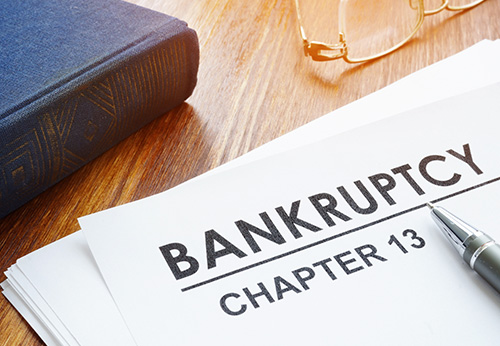What Are The Changes To A Chapter 13 Bankruptcy Debt Limitation?
As a result of The Bankruptcy Threshold Adjustment and Technical Corrections Act, the amount of debt allowed by debtors to qualify for a small business reorganization under Subchapter V was increased to $7.5 million.
Signed on June 21, 2022, the bill extends the increase for another two years, the prior increase in the amount of debt allowed by debtors to qualify for a small business reorganization to $7.5 million. In the future, the debt limitation can be adjusted for inflation.
Additionally, small business debtors affiliated with publicly traded companies can qualify for Chapter 5 bankruptcy. Finally, the act authorizes a bankruptcy trustee to operate a debtor’s business if the debtor ceases to be a debtor in possession.
The law also increased the debt limit in a Chapter 13 case to $2.75 million. The new law eliminates the distinction between secured and unsecured debt as to the 11 U.S.C. 109 (b) debt calculation for Chapter 13 debtors.
There has been a significant increase in the filing of Chapter 13 cases as a result of the moratoriums that have been lifted. This increase in the debt limitation and elimination of the distinction between secured and unsecured debt is expected to result in more Chapter 13 filings over the next few years.
Will Individual Chapter 11 Filings Still Be Necessary After The Chapter 13 Debt Limit Increase?
It would be unusual for and individual considering Bankruptcy relief to choose to file a Chapter 11 filing after the passage of the Bankruptcy Threshold Adjustment and Technical Corrections Act, increasing the debt limit to $2.75 million.
Most individual Chapter 13 cases are filed because the individuals fail to qualify to file a Chapter 13 case because their amount of debt exceeds the prior debt limitations. The process for individuals in Chapter 11 filings is more cumbersome than in Chapter 13 because creditors can vote to approve or disapprove a proposed Chapter 11 Plan.
Monthly operating reports are required in Chapter 11 cases, counsel fees are more significant, and you must satisfy more stringent legal requirements to confirm a Chapter 11 plan. There will likely be few Chapter 11 individual filings for at least the next two years while the increased debt limitation is in effect.
Can A Creditor Of A Chapter 13 Debtor Seek Relief To Compel The Debtor To Increase The Amount Of The Plan Payment?
Creditors of a Chapter 13 debtor and a confirmed Chapter 13 plan have a right to file a proposed modified Plan after the debtor has confirmed a Chapter 13 plan. This is an unusual remedy that is rarely The creditors may continue to monitor the case during the five year Plan term.
A creditor may become aware of a substantial change in income of an individual debtor during the plan. In that case, the creditor can request to the court an increase in the distributions to the unsecured creditor.
How Frequently Do Chapter 13 Debtors File Plans That Include A Sale Of Their Home To Satisfy Their Mortgage And Unsecured Debt?
It is routine for Debtors to file a Chapter 13 bankruptcy case and use the sale of their home to satisfy their mortgage after court approval of a sale. That sale requires a motion to be served on the secured parties and the Chapter 13 trustee. The issue of allocation of the sale proceeds arises when non-exempt equity in the home is part of the Plan funding and the confirmed Chapter 13 Plan pays less than 100% to unsecured creditors
The legal issue arises when the debtors seek to retain as much of the non-exempt equity as possible after fully paying their Chapter 13 plan. Most Chapter 13 trustees assert the standard position that nearly all non-exempt equity after payment of the Debtor’s allowed amount for a properly asserted real estate exemption should be dedicated to the payment of creditor claims.
Get Information on Changes To A Chapter 13 Bankruptcy Debt Limitation, call Michael McLaughlin, LLC, for an initial consultation at (908) 373-8500, and get the legal answers you seek.

Schedule A Consultation
(908) 373-8500

